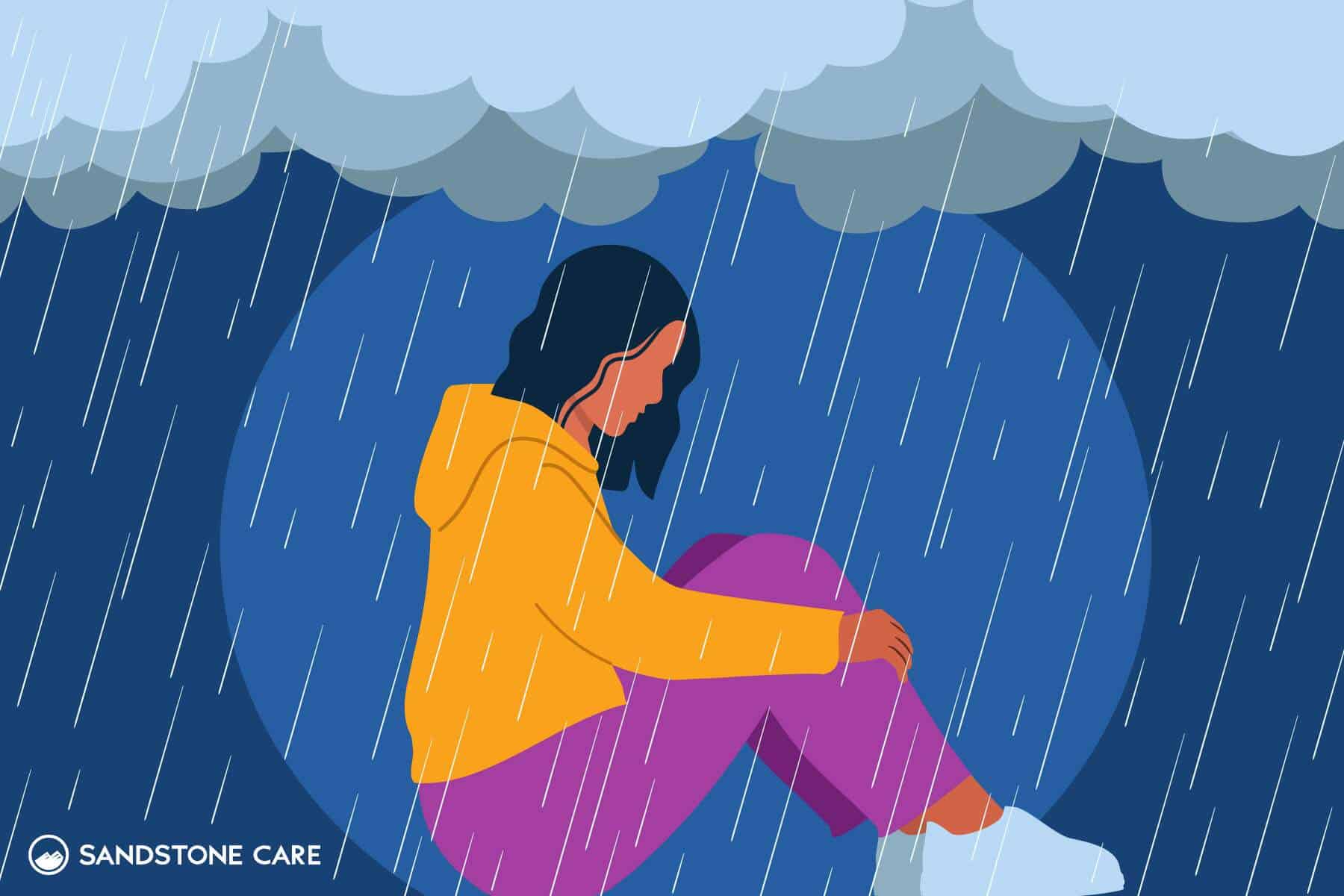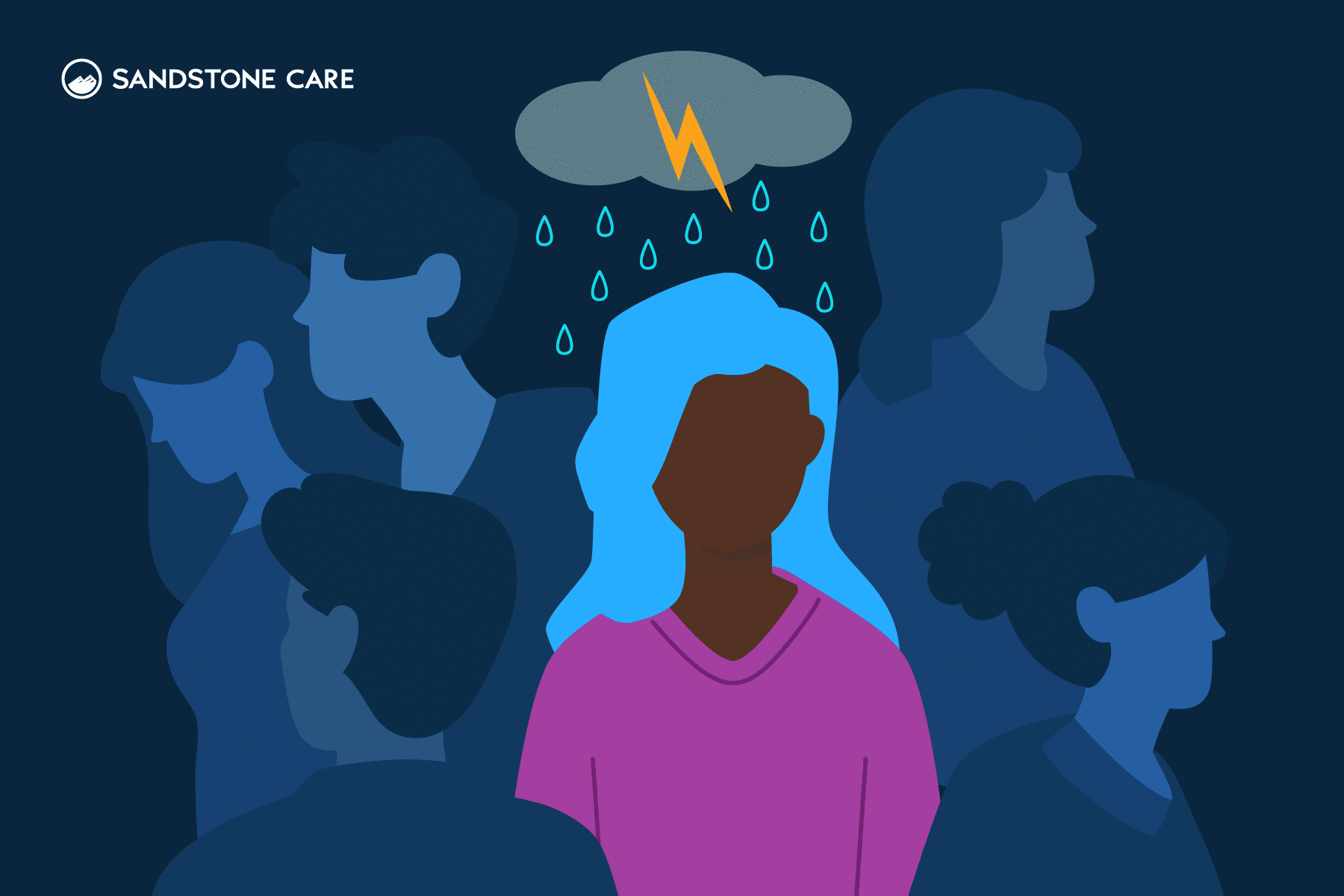“I Hate My Life”, How to Overcome Hopelessness
Why Do People Say They Hate Their Lives?
Some people say they hate their lives because they’re experiencing deep frustration or feelings of hopelessness about their circumstances, while others may be experiencing an untreated mental health condition such as anxiety, depression, bipolar disorder, or even suicidal ideation.
Have you ever been shocked to hear someone close to you say that they hate their life? Maybe it is someone who seems to have every reason to be happy. Maybe they have a lot of friends, are successful in work or school, and appear to have it all together on the surface.
In reality, though, it is hard to know what might be going on behind the scenes of someone’s life that we don’t know about. They may have a close family member who is sick or struggling with substance abuse.
Maybe they are going through some difficult times in their personal life, such as financial problems, struggles with their physical health, an unhealthy relationship, or excessive amounts of stress.
Whether you have a loved one who is currently going through a crisis like this or it is something you’re experiencing in your own life, it is important to remember that there is hope, and there are resources available.
Working with a mental health professional can help you work through these complex emotions.
Continued therapy can help you get back on track, improve your mental health, and find happiness, purpose, and self-worth again. To learn more about the types of treatments available, contact your team at Sandstone Care today.
Why Do I Hate My Life?
There are many different reasons you could be feeling this way, including deep-rooted emotional or psychological problems, difficult life events or circumstances, negative thoughts, or low self-esteem.
Nobody hates their life without having a reason. If this is something you’re currently going through, it is important to take a step back and consider what specific things may be causing you to feel that way.
From there, you can then begin to take active steps toward getting your life and your mental health back in a positive place.
One of the most common reasons that many people may feel they hate their life is because they have unresolved trauma from the past. If trauma is not resolved, it can impact you for years and even decades to come?
While you might not have ever been diagnosed with post-traumatic stress disorder (PTSD), that doesn’t mean that past trauma you’ve experienced could be influencing your happiness and self-esteem today.
According to the National Center for PTSD, studies have found that about 15% to 43% of girls and 14% to 43% of boys will experience at least some form of trauma in their lives. This trauma can come in many different forms.
For example, it may include child abuse or neglect. It may involve being the victim of physical, mental, emotional, or sexual assault. It could also be experiencing a car accident, a natural disaster, or some other distressing incident.
Working with a therapist can help you to determine if past trauma you’ve been through may be causing the unhappiness you feel today.
Health care providers can also help determine whether you may have a mental health disorder that you need to receive treatment for.
From there, you can begin to use problem solving skills you gained in therapy to help reclaim how you feel about your life.
Difficult life circumstances or events can be another common cause for feeling this way. This may include things like :
- Financial struggles
- A toxic work environment
- Relationship problems
- Excessive stress
- Unsafe living conditions
- Unemployment
- A sick relative
Getting stuck in negative thought loops or struggling with self-esteem can also cause someone to feel as if they hate their life.
An individual struggling with low confidence may often find themselves comparing themselves to their peers or looking for flaws within themselves. As a result, they experience feelings of self-hatred or even thoughts of self-harm or suicidal thoughts.
While confronting these complex thoughts and difficult emotions can be very challenging, it is the first step in identifying the problem. With professional help, you can then find ways to make positive changes to your life.
What to Do If You Find Yourself Saying “I Hate My Life” Often
What Should I Do if I Hate My Life?
If you feel like you hate your life, the first thing you should do is reach out to your doctor, therapist, or a mental health professional right away.
It is important not to put off getting help. If you wait too long or try to handle this problem on your own, you may find that it gets worse instead of better.
You may also find yourself in a position where you may turn to unhealthy coping mechanisms such as substance use to deal with the problem. Even worse, you may experience thoughts of doing something to hurt yourself.
It is a much better idea to reach out for help so that you can come up with healthy, productive, and positive solutions instead.
What Should I Do If I Hate My Life and My Job?
Try to take a step back and identify the specific factor or factors that are making you so unhealthy and then consider practical solutions that could improve the situation.
Because it can sometimes be helpful to have an outsider’s perspective, you may consider talking this out with a family member, friend, or even a therapist.
Start by considering what you dislike about your job. It may involve one of the following factors:
- A toxic work environment
- Low pay
- Unfair treatment
- Not enough opportunities for growth
- Excessive stress
- Mistreatment from a boss, coworker, or employee
Now that you’ve identified this specific factor, you can then think about what you’re going to do to address the problem. What active steps can you take to improve your situation? It is important to consider practical solutions and not just immediately resort to quitting your job without a backup plan.
One positive solution could include talking with your boss or superior about the things you’re unhappy about. They may be able to help you address the problem.
For example, maybe they could improve their communication or help to create a less stressful work environment. Maybe they could even discuss different things you can do to grow within the company or get to a point where you’re feeling more fulfilled. If this isn’t an option, there are some other things that you can consider.
Some examples include:
- Start sending out your resume and looking for new job opportunities
- Try making professional connections on Linkedin
- Consider going into a new career field where you would feel more fulfilled
- Think about starting a side job while you search for a more long-term solution
While you’re making a plan and putting it into action, it is important to continue to consider what else you need to work on to improve your overall mental health. If you’re feeling overly stressed or burnt out, you may need to incorporate more self-care into your daily life. This includes doing whatever is necessary to take care of your mental, physical, or emotional well-being.
Self-care looks different from person to person, and it’s important to figure out what works best for you. Making time for even just 10 minutes of self-care a day can make a very positive difference in your mood, productivity, and mental health.
Some examples of self-care you could try incorporating into your life may include:
- Doing some journaling
- Practicing mindfulness or meditation
- Listening to calming music
- Taking a walk
- Spending more time in nature
- Making time for more quality conversations with loved ones
- Watching your favorite show
- Making a list of things you’re grateful for
Doing all of these things can help you to feel more in control of your life circumstances. It can also help to remind you that even if you’re not where you want to be with your life or career, you won’t be stuck in this place forever.
How To Stop Hating Your Life & Feel Better
What Is the Best Treatment For Depression and Anxiety?
The best treatment for depression and anxiety depends on the person and their unique situation but may include medication, therapy, life changes, or a combination of all of these things.
Everyone’s experience with mental health issues looks a little bit different. Symptoms can range from mild to very severe. Because of this, it is important to remember that there is no one-size-fits-all approach to treating things like anxiety or depression.
Many people will begin treatment with some form of therapy or counseling. This may include popular options like cognitive-behavioral therapy (CBT), which involves working with a therapist to identify negative thoughts or behavior patterns.
From there, the person can work on being more aware of their thought processes and can learn how to cope with negative feelings in a more productive way.
For those who have more severe symptoms or those who are not getting the relief they need from therapy, they may be prescribed medication to manage their symptoms.
This often includes selective serotonin reuptake inhibitors (SSRIs). Common SSRI brand names you may have heard of before include Proxac, Zoloft, or Lexapro.
Doctors will also often recommend some form of lifestyle change to those struggling with their mental health.
This may include getting more sleep, taking time away from social media, prioritizing a healthy diet, or making more time for exercise regularly. They may also include making more time for self-care to improve mental and emotional well-being.
What Is Mindfulness & How Can It Help Me Feel Better?
Mindfulness involves making a conscious effort to be fully present at the moment. It can help you to feel better by reducing stress levels and relieving symptoms of anxiety and depression.
Have you ever felt like your mind is racing from the second you wake up in the morning to when you go to bed at night?
You may feel overwhelmed with everything on your to-do list. Your mind may feel like it’s bouncing from one thing to the next, but you’re unable to fully focus on anything at a time.
If this is a common experience for you, making time to practice mindfulness will likely transform and improve your life.
Mindfulness is a practice that allows you to sit calmly and allow yourself to focus on your current thoughts, emotions, and surroundings. It encourages you to consider these things without judgment, but to just be aware of them and accepting of them.
If this isn’t something that you do regularly, it may take some time and patience to get the hang of it, but don’t give up!
What Should I Do If I Think I Have a Personality Disorder?
If you think you have a personality disorder, it is best to reach out to your doctor, therapist, or a mental health professional.
Make sure to get a professional diagnosis rather than trying to diagnose yourself.
Suicide Awareness & Resources
Where Can I Find Resources for Suicide Prevention?
For immediate help and suicide prevention resources, reach out to the suicide and crisis hotline by dialing 988.
This resource is available 24/7. You can also utilize the crisis text line by texting HOME to 741741 at any time.
If you are a veteran experiencing suicidal thoughts, there is a specific veterans crisis line that can help support you. Dial 988, then press 1.
Where Can I Find Mental Health Care?
If you’re in need of immediate help, contact the 24-hour crisis helpline by dialing 988. You can also reach out to any of the therapists, counselors, or mental health professionals in your area.
If you have a primary care physician, don’t hesitate to reach out to them for support. They can provide you with resources and point you in the right direction to find a therapist who meets your needs.
You can also find more resources by using the SAMHSA Treatment locator by calling 1-800-662-HELP (4357) or by visiting findtreatment.samhsa.gov online.





